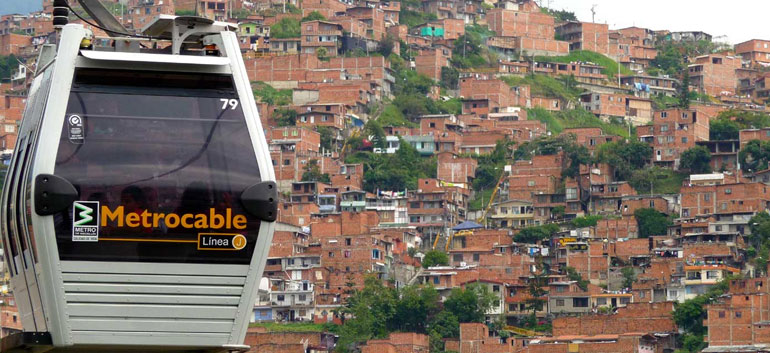Colombia’s second city Medellin has presented a charter promoting a road map for the sustainable development of cities in the future.
Medellin Mayor Anibal Gaviria presented the “Medellin Charter” at VII World Urban Forum. The document proposes a new way of thinking as to how the cities of the future should develop, grounded in the need for sustainable growth and social equality, reported W Radio.
Medellin is currently hosting the VII World Urban Forum which has been discussing a wide range of urban issues facing the world today, specifically rising inequality.
MORE: UN’s World Urban Forum begins in Medellin Saturday
Medellin has received worldwide attention in recent years, with the city’s rise from one of the world’s most dangerous cities to a model of sustainable development. The city was rewarded for its progress being named the world’s most innovative city of 2012.
MORE: Medellin named world’s most innovative city of 2012
The “Medellin Charter” is a 204 page document outlining a proposal for the future development of world cities based on the extraordinary metamorphosis that Medellin has undergone since the city was gripped by drug violence.
Cities designed for a life of equality
On his Twitter account, Mayor Gaviria, called the charter, “a model of equality for life.”
Les comparto la Carta Medellín, un legado de nuestra ciudad en el marco del #WUF7. Un modelo de equidad para la vida http://t.co/8yD7WjzD6e
— Aníbal Gaviria C. (@anibalgaviria) April 9, 2014
The introduction to the charter asks, “how can we make it so that by 2050, cities are dwellings fit for a life of dignity, security and peace? How can we reduce gaps which are becoming increasingly wide in cities which grow and progress but with great inequality?”
“The Medellin Charter fundamentally goes to the heart of the notion of cities designed for a life of equality,” the charter continues.
The Charter is divided into two distinct strands. One strand focuses upon aspects such as the value of life and the pursuit of equality, analyzing factors such as unity in diversity, cultural integration as well as moral and traditional values.
The second half analyzes the overall management of cities from a governance point of view. It focuses upon education, culture and art in cities, as well as education planning, transport systems, mobility, and economic development.
Economic, social and environmental sustainability
There is a focus upon economic development, although the charter notes that this should not come at a cost to social equality. It calls for, “economic development with equality, whose premise is to advance competitiveness, technology and progress, without increasing existing divides, echoing the calls for economic, social and environmental sustainability. ”
The Charter has been translated into several different languages and sent around the world to various cities.
The 7th World Urban Forum, which concludes on Friday has been focusing upon solutions to curb growing social inequalities with over 25,000 delegates from around the world participating.
Sources
- Carta Medellin (PDF)
- Presentan la ‘Carta Medellín’, una hoja de ruta para pensar las ciudades del futuro (W Radio)
- Presentada Carta de Medellín para exportar desarrollos al mundo (Caracol Radio)
- Medellín propone una hoja de ruta para pensar las ciudades del futuro (Opinion)


